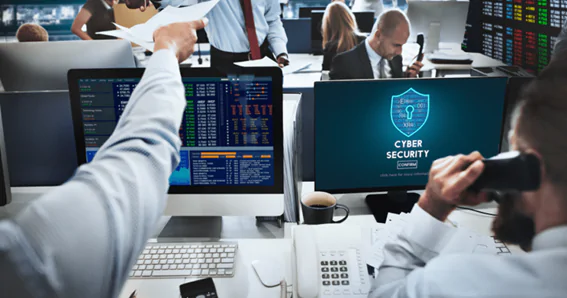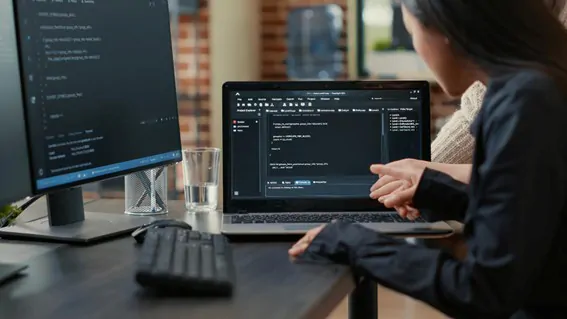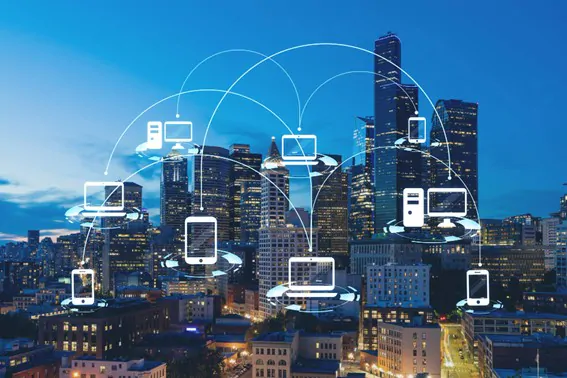1. Keep your software up to date
Software companies typically release software updates for three reasons: to add new features, fix known bugs, and update security.
Always update to the latest version of your software to protect against new or existing security vulnerabilities.
2. Avoid opening suspicious emails
If an email looks suspicious, don't open it as it could be a phishing scam.
Someone may be impersonating another person or company to gain access to your personal information. Sometimes, emails can also include attachments or links that can infect your devices.
3. Keep your hardware up to date
Outdated computer hardware may not be compatible with the latest software security updates. Additionally, older hardware slows down the response to cyberattacks if they occur. Make sure you're using the most up-to-date computer hardware.
4. Use a secure file sharing solution
Use a secure file sharing solution like TitanFile to encrypt your files in transit and at rest to prevent unauthorized access and keep your files safe. After all, your files are only as secure as the tools you use to share them.

5. Use antivirus and antimalware
While connected to the internet, it's impossible to have complete and total protection against malware. However, you can significantly reduce your vulnerability by ensuring that you have antivirus and at least one anti-malware program installed on your computers.
6. Use a VPN to private your connections
For a more secure and private network, use a virtual private network (VPN). It will encrypt your connection and protect your private information, even from your internet service provider.
7. Check links before clicking
Links can easily be disguised as something they're not, so it's best to double-check before clicking a hyperlink. In most browsers, you can see the destination URL by hovering your mouse over the link. Do this to double-check links before clicking them.
8. Don't be lazy with your passwords!
Put more effort into creating your passwords. You can use a tool like howsecureismypassword.net to find out how strong your passwords are.
9. Turn off Bluetooth when you don't need it
Devices can be hacked via Bluetooth, and your private information can subsequently be stolen. If there's no reason to have Bluetooth turned on, turn it off!
10. Enable 2-factor authentication
Many platforms now allow you to enable two-factor authentication to keep your accounts more secure. It's another layer of protection that helps verify that it's actually you accessing your account and not someone unauthorized. Enable this security feature whenever possible.
11. Remove adware from your machines
Adware collects information about you to deliver more targeted ads. It's best to rid your computer of all forms of adware to protect your privacy. AdwCleaner to clean adware and unwanted programs from your computer.
12. Double-check HTTPS on websites
When you're on a website that doesn't use HTTPS, there's no guarantee that the information transfer between you and the website's server will be secure. Double-check that a website is using HTTPS before providing any personal or private information.

13. Do not store important information in insecure places
When storing information online, you want to keep it in a location that cannot be accessed by unauthorized users.
14. Scan external storage devices for viruses
External storage devices are just as susceptible to malware as internal storage devices. Connecting an infected external device to your computer can spread malware. Always scan external devices for malware before accessing them.
15. Avoid using public networks
When you connect to a public network, you share the network with everyone else who's also connected. Any information you send or retrieve over the network is vulnerable. Stay away from public networks or use a VPN when connected to one.
16. Avoid the “safe enough” mentality
Unless you're completely isolated from the rest of the world, there's no such thing as "secure enough." Large companies like Facebook invest a fortune in security every year, yet they're still affected by cyberattacks.
17. Invest in security updates
Following the advice above, try to invest in security updates when they become available. It's better to eat the costs of security than to pay the consequences of a security breach!
18. Backing up important data
Important data can be lost as a result of a security breach. To ensure you're prepared to restore data after it's lost, you need to ensure your important information is frequently backed up to the cloud or a local storage device.
19. Train employees
The key to successful cybersecurity is ensuring your employees are well-trained, synchronized, and consistently practice security practices. Sometimes, a single mistake by a poorly trained employee can bring an entire security system to its knees.

20. Use HTTPS on your website
Having an SSL certificate installed and HTTPS enabled on your website will help encrypt all information traveling between a visitor's browser and your web server.
21. Hire a white hat hacker
Not all hackers are bad. Some hackers expose security risks to help others improve their cybersecurity by keeping them aware of security flaws and fixing them. These hackers are known as "white hat" hackers. It can be beneficial to hire one to help you find risks you never knew you had.







